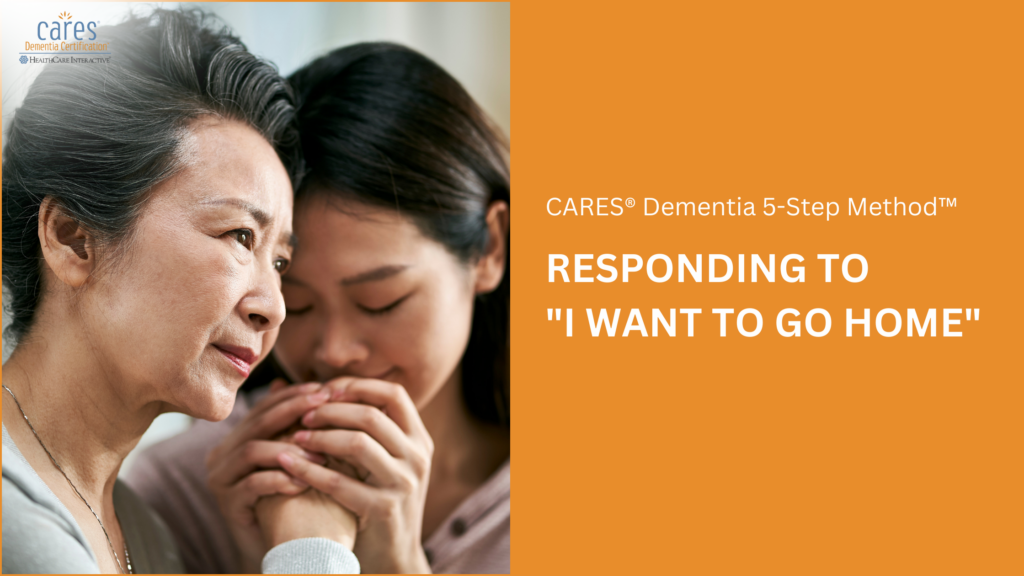Understanding the Situation
People living with dementia often express a desire to “go home,” even when they are in a place they consider their home. This can be an emotional reaction stemming from feelings of loneliness, confusion, or nostalgia. Reassuring dementia patients during such moments is crucial to providing comfort and security.
Immediate Responses
When a person living with dementia says, “I want to go home,” it’s important to focus on the emotional needs underlying the statement:
• Loneliness or Fear: “I know you miss your beautiful home in the country. Tell me about it.”
• Comfort and Familiarity: “Everyone’s staying here tonight, so you won’t be alone. Let’s go look at your room—it’s very nice.”
For other statements, such as “I’m leaving for work now,” the person might feel anxious or confused about their routine:
• Redirecting with Purpose: “You’re such a good worker. Would you help me organize these papers?” This creates a meaningful task and redirects focus.
Similarly, if a person says, “My purse was stolen,” they may feel scared or upset:
• Offering Reassurance: “Oh no! Let me help you look for it.” Reassuring dementia patients and offering assistance calms their anxiety.
What It Means and How to Respond
In many cases, behaviors like rocking in a chair and saying “Help me” are not necessarily distress signals but comforting, repetitive actions. Understanding emotional reactions and needs is key:
• Sit and Observe: Try sitting down with the person, holding their hand, and gently asking, “How can I help?” Even if they cannot provide an answer, your calm presence may be all they need.
Ultimately, the goal is to connect with the emotional experience behind their words and provide reassurance. Reassuring dementia patients in this way helps create a sense of home, focusing on comfort rather than the physical location.
Would you like to earn your certification in CARES® Dementia 5-Step Method?
Start now and gain access to Module 1 for free at www.hcinteractive.com/5StepDemo.
Don’t miss out—this limited-time offer is available now!

